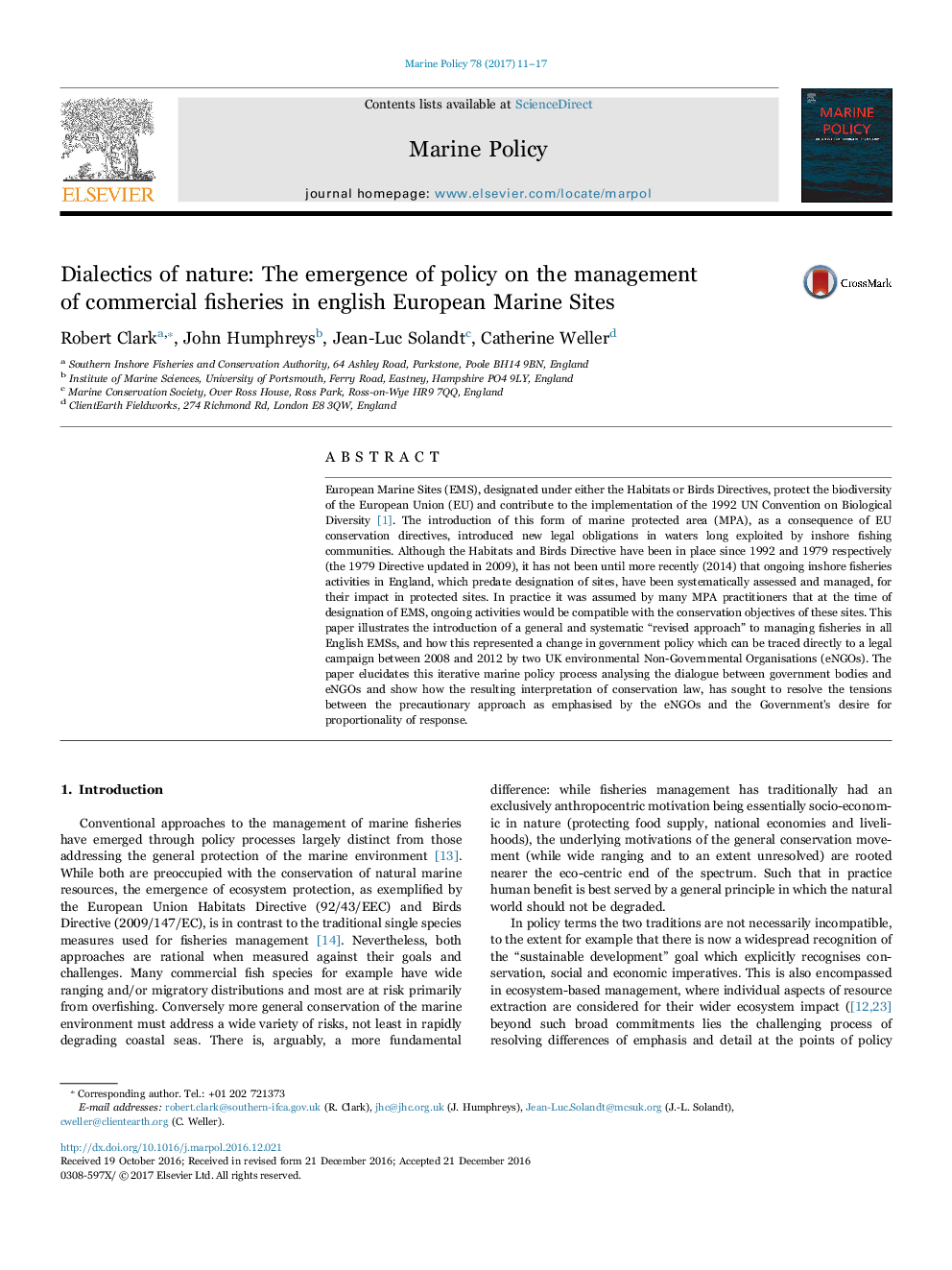ترجمه فارسی عنوان مقاله
دیالکتیک طبیعت: ظهور سیاست در مدیریت ماهیگیری تجاری در سایت های دریایی اروپایی انگلیسی
عنوان انگلیسی
Dialectics of nature: The emergence of policy on the management of commercial fisheries in english European Marine Sites
| کد مقاله | سال انتشار | تعداد صفحات مقاله انگلیسی |
|---|---|---|
| 92539 | 2017 | 7 صفحه PDF |
منبع

Publisher : Elsevier - Science Direct (الزویر - ساینس دایرکت)
Journal : Marine Policy, Volume 78, April 2017, Pages 11-17

